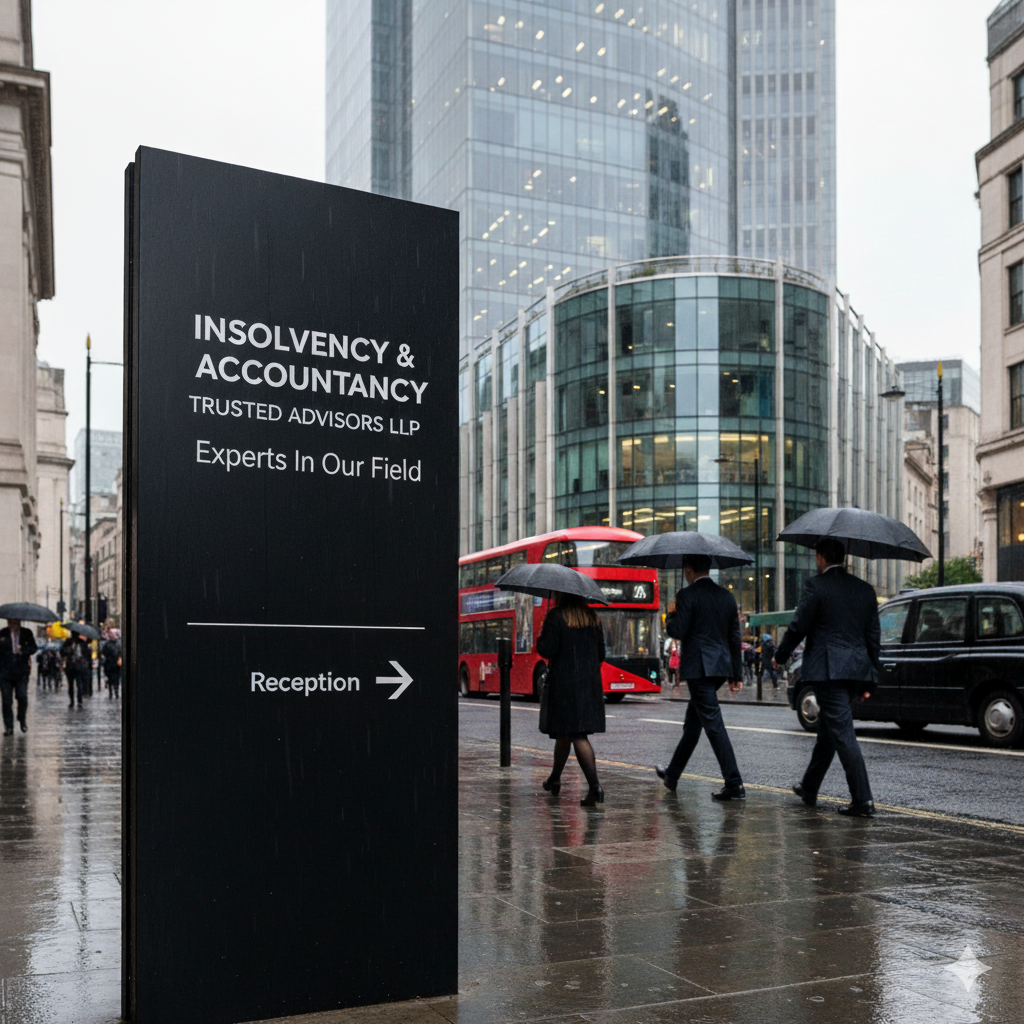Standing out in a sea of suits: Marketing for Professional Services
Marketing within professional services has a reputation problem.
It’s not that the work itself is boring, but the way firms talk about themselves often is. Whether you’re an accountancy practice, a law firm, or an insolvency specialist, too many in these industries rely on the same tired language about being “trusted advisors” or “experts in their field.”
The reality is that clients already assume you’re competent. They’re looking for something more. They want reassurance that you understand their situation, that you’ll treat their problem with care, and that they can rely on you when things get difficult. In a market with over 40,000 accountancy practices, 175,000 practising solicitors and around 12,000 insolvency professionals, it’s no longer enough to be good at what you do. You have to be seen to be good at what you do.
That’s where effective marketing comes in. Not glossy slogans or empty corporate messaging, but clear, credible communication that builds trust, demonstrates authority, and connects with real people.
A cliché worth unpacking
“People buy from people” has become something of a cliché, but that doesn’t make it any less true. It’s only lost meaning because so few professional firms actually live by it.
When someone calls their accountant, solicitor or insolvency practitioner, it’s rarely in calm circumstances. It’s because something has gone wrong, or could go wrong if they don’t act quickly. They need clarity and reassurance. They need someone who can take control of a situation they may not fully understand.
In that moment, they aren’t choosing between firms. They’re choosing between people. That’s why the most effective professional services marketing isn’t about showing off expertise. It’s about showing empathy. It’s about being approachable, relatable, and human enough that someone feels comfortable picking up the phone to you in the first place.
Internal culture shapes external credibility
Authenticity starts inside the business. Too many firms present a polished image online while ignoring the reality within their own walls. You can’t claim to have an exceptional culture if your employees are quietly disengaged, nor can you expect your people to advocate for a brand they don’t believe in.
Every firm relies on its people to share, comment on and engage with its marketing. When that happens organically, it amplifies your reach and makes your messaging more credible. But it only happens if employees genuinely feel proud of the firm they represent.
Authenticity isn’t about sharing every internal challenge publicly. It’s about alignment between what you say and what your people experience. When those two things match, your marketing starts to carry real weight.
Clarity through specialism
The temptation in professional services is to try to be everything to everyone. That approach might feel safe, but it’s also forgettable. Clients are drawn to specialists, not generalists, because specialism signals understanding.
Firms that commit to a particular sector or type of client can communicate with far greater clarity. An accountant focused on the hospitality sector, a solicitor known for construction disputes, or an insolvency practice specialising in SME recovery will always appear more relevant than a firm trying to cover every possible base.
This isn’t about exclusion; it’s about precision. The more specific your positioning, the easier it becomes for clients to see themselves in your messaging. That recognition is often what leads to an enquiry.
Authority through evidence
If there’s one area where professional services firms consistently undersell themselves, it’s the intelligent use of data.
Most firms already have access to a wealth of information through client work, case trends and sector insight. Combined with data from industry bodies or regulatory sources, that information can form the basis of original thought leadership that carries real authority.
An accountancy practice could analyse Companies House filings to identify regional business performance trends. An insolvency specialist could use Office for National Statistics data to comment on the financial health of specific sectors. A law firm could review SRA or Ministry of Justice reports to forecast demand in areas such as employment or corporate law.
This type of content moves a firm beyond self-promotion. It positions you as a knowledgeable observer of your market, capable of providing commentary that adds value to clients, partners and the media. That’s the difference between claiming expertise and demonstrating it.
Visibility Matters
Reputation is built through consistency, not volume. Firms that appear in the right places, saying the right things, build trust over time. That might mean being active on LinkedIn, publishing short-form opinion pieces, or taking part in local business events. It could also mean offering commentary to trade publications or speaking at industry conferences.
Visibility isn’t vanity. It’s reinforcement. Every touchpoint reminds your audience who you are and what you stand for. And when the moment comes that they need your services, you’re already front of mind.
Say what you mean, clearly
Complexity doesn’t make you sound more intelligent; it makes you harder to understand. Clarity of communication is one of the most underrated skills in professional services.
When you strip out jargon and say things simply, you create accessibility and trust. Clients don’t want to wade through paragraphs of legal or financial language; they want to know what something means for them and what they should do next.
Confidence isn’t about sounding clever. It’s about being clear enough that people believe you know exactly what you’re talking about.
A final word
Professional services marketing has to do more than look competent. It has to feel genuine, intelligent and human.
The firms that grow are the ones that communicate with clarity and consistency, who use data to bring insight rather than opinion, and who show empathy as well as expertise.
When you speak with authority and honesty, you don’t need gimmicks to stand out. In industries built on trust, that’s still the most effective marketing strategy there is.



